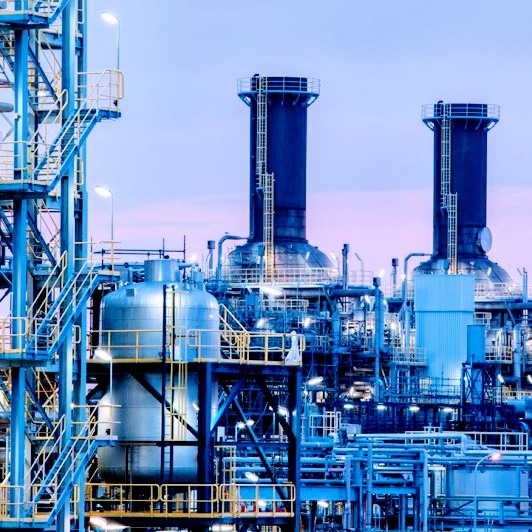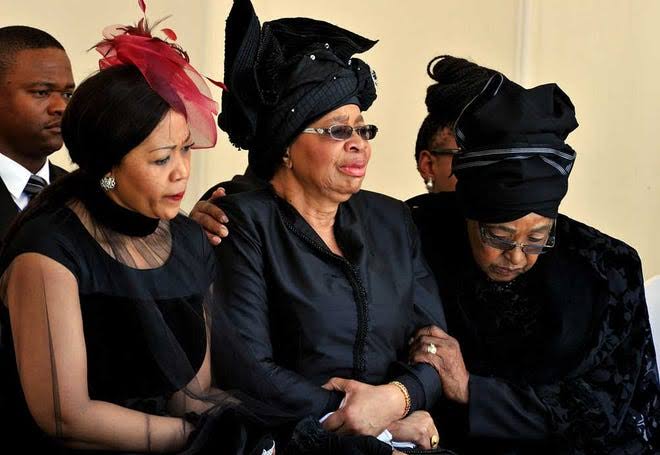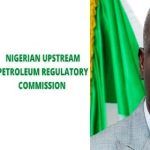The energy sector which provides fuel that powers various sectors of a nation’s economy, plays a pivotal role in driving industrial growth. Nigeria’s oil and gas industry experienced ups and downs as the government adopted key policy decisions that had far-reaching impacts on the economy.
Prime Business Africa’s Victor Ezeja examines major events that created a defining moment in Nigeria’s oil and gas industry during the year 2023 while looking ahead of 2024.
Join our WhatsApp ChannelPetrol Subsidy Removal
With the hues and cries about the increasing financial burden posed on the Nigerian government by the payments for subsidies on Premium Motor Spirit (PMS), President Bola Tinubu during his inauguration on May 29, 2023, declared total removal of the policy.
Tinubu’s declaration that “Subsidy is gone,” jolted into consciousness, many citizens, who had expected that it would continue until government put necessary measures on the ground to cushion the effect. But as Tinubu indicated to justify his decision, there was no budgetary provision for it by his predecessor, ex-President Muhammadu Buhari beginning from the second half of the year. Buhari’s government had budgeted N3.36 trillion to cover fuel subsidy payments from January to May 2023. The immediate past administration had intended to stop fuel subsidy payments in June 2022 but outrage by Nigerians and the threat of nationwide protest by organised labour forced it to extend the scheme by 18 months coinciding with the end of Buhari’s tenure. According to the Nigerian Midstream and Downstream Petroleum Regulatory Authority (NMDPRA), the Nigerian government spent N4 trillion on subsidising the cost of petrol distributed across the country in 2022.
Tinubu has repeatedly maintained that the subsidy removal is one of the toughest but the best decisions of his administration as according to him, the scheme benefited only a few powerful individuals thereby impoverishing ordinary Nigerians.
The aftermath of the subsidy removal was over a 300 per cent hike in the price of petrol across the country. At first, it rose from the N189 official price to about N500 per litre and subsequently jumped to over N600. Currently, it is sold at between N617 and N670, depending on the location in the country. By the principle of a deregulated market, the price is expected to fluctuate in response to changes in crude oil prices in the international market and the foreign exchange rate since the supply of the product is solely through import.
The hike in the price of PMS and other petroleum products such as Automotive Gasoline Oil (AGO) also known as diesel has had a significant impact on the rising cost of things across the country. Transport fares rose by 98 per cent in one month from N649.59 in May 2023 to N1,285.41 in June 2023, according to data obtained from the Transport Fare Watch report of the National Bureau of Statistics (NBS) for June 2023. This had a consequential effect on food prices and services across the country.
The inflation rate also continued to surge. First, it rose from 22.22 per cent in April to 22.41 per cent in May 2023, reaching an all-time high of 28.2 per cent in November 2023, according to the NBS CPI and Inflation report.
With the reactions the policy elicited from Nigerians, the Federal Government announced palliatives to cushion the effect of the subsidy removal as the citizens started taking measures to adjust to the new reality.
While oil marketers, economic analysts and observers asserted that what the Federal Government did was a partial removal of subsidy, hence maintaining the somewhat regulated price, the government through the Nigeria National Petroleum Company have insisted that it is not making any subsidy payment, adding that all funds spent on the importation of refined products were fully recovered.
Focus on CNG as Alternative to Fuel
The removal of subsidies on petrol which led to a hike in the price of petrol, pushed the government to revive efforts towards advancing infrastructure for the adoption of Compressed Natural Gas (CNG) which seems to be cheaper and also offers a cleaner form of energy in line with the global energy transition agenda.
The Federal Government unveiled the Presidential Compressed Natural Gas Initiative (PCNGI) with the creation of seven CNG conversion centres. It also announced a waiver of Value-added Tax (VAT) on the purchase of CNG buses.
READ ALSO: Nigeria’s Petroleum Minister Targets 2 Million Barrels Daily Crude Oil Production In 2024
The Presidential CNG Initiative Steering Committee chaired by Zacch Adedeji of the Federal Inland Revenue Service (FIRS) is geared towards cutting high transport costs caused by petrol subsidy removal. The Special Assistant to the President on Special Duties and Domestic Affairs, Toyin Subaru, had during a stakeholders’ meeting held at the Bank of Industry headquarters in Abuja stated that the adoption of CNG will help Nigerians save about two-thirds of their transport cost. According to him, “We should be able to buy gas for our cars at N230 per KG as against the cost of petrol which is N680 per litre. This should help every Nigerian save about two-thirds of their transport cost.”
During the flag-off of the PCNG initiative on October 27, 2023, some CNG-powered buses were handed over to the State House. The committee further disclosed that the government has finalized plans to partner with private sector operators, cooperatives, states and union-operated mass transits to roll out 11,500 CNG buses. It added that the government has ordered 55,000 conversion kits for distribution across the country to ease the conversion of vehicles from petrol/diesel-powered to CNG.
READ ALSO: Nigeria’s Power Sector Journey: 2023 In Perspective
President Tinubu during his nationwide address on July 31, announced that the Federal Government will invest N100 billion between now and March 2024 to acquire 3000 units of 20-seater CNG-fuelled buses. Subsequently, during his Independence Day speech, President Tinubu assured that efforts were on top gear to make available new CNG conversion kits.
In November 2023, the Presidential Committee inaugurated Abuja and Kaduna CNG conversion centres. States have also indicated an interest in investing in CNG-powered mass transit vehicles.
Earlier in June, oil marketers promised to identify with the initiative. Chairman of the Depot and Petroleum Products Marketers Association of Nigeria (DAPPMAN), Winifred Akapani, had while speaking after a meeting in Abuja, said the group would donate 100 CNG buses to help ease transport costs due to petrol subsidy removal.
Last month, Governor Babajide Sanwo-Olu while commissioning the fourth flyover constructed along the Lagos Rail Mass Transit red line corridor disclosed that the state would be rolling out 50 electric buses and 100 CNG-powered buses for passenger operations.
The governor, who stated that the CNG-powered buses would be coming from the Federal Government, promised to increase the fleet to about 1,000 units before the end of 2024.
Also, the Ogun State governor, Dapo Abiodun, on 30 October 2023 launched CNG-powered mass transit buses in Abeokuta the state capital to cushion the effect of petrol subsidy removal.
With the rise in the price of petrol at a geometric rate within the second half of last year, many who use gasoline generators have also begun converting them to gas. This led to people buying gas cylinders that are refilled and used to fuel.the generators both at home, workplaces and business centres. This however, comes with its safety implications which government agencies saddled with safety standards regulations have begun enlightening the citizens about safe ways to use them.
Completion of Port Harcourt and Dangote Refineries In 2023
Another significant development in Nigeria’s oil and gas sector in 2023 was the completion of the rehabilitation of the Old Port Harcourt Refinery and Dangote Petrochemical Refinery.
The Port Harcourt Refinery Company Limited has two plants – the old one which has 60,000 barrels per day (bpd) refining capacity and the new one which has 150,000 bpd capacity. The Federal Government under Buhari’s administration had in March 2021 approved $1.5 billion for the rehabilitation of the facility. The government under Tinubu completed the first phase of the rehabilitation in December 2023 with a promise to commence production of petroleum products in January this year while working towards the completion of the second phase of the rehabilitation (the 150,000 bpd capacity) before the end of 2024.
Announcing the development after the Refinery’s Rehabilitation Steering Committee meeting held in Port Harcourt, in December, Minister of Petroleum Resources (Oil), Senator Heineken Lokpobiri, said: “ This is just to announce to Nigerians that in fulfilment of our pledge to bring on stream phase 1 of the PH refinery by the end of 2023 and the subsequent streaming of phase 2 in 2024, we heartily announce the mechanical completion and flare-up of the refinery on the 20th of December 2023.
“This heralds the commencement of production of petroleum products after the Christmas break.”
Chairman of the NNPCL Board, Chief Pius Akinyelure, said they are committed to achieving the highest level of production to keep the price of petroleum stable in the country.
The Dangote Refinery, a 650,000 bpd capacity launched in May, had a delay in its initial plan to begin operations in June 2023. However, the company management has been pulling all strings lately to ensure that it comes on stream early this year. The facility has reportedly received four consignments of about 1 million barrels of crude each, preparatory to commencement of production.
The company said it will start producing diesel, aviation fuel, Liquefied Petroleum Gas (LPG), and PMS once it receives a total of six million barrels of crude oil.
Though starting to produce at 350,000 bpd capacity for now it is expected that together with the 60,000 bpd from Port Harcourt Refinery, would to a great extent, address the domestic demand in the country which has been largely responsible for total reliance on importation of refined petroleum products.
Crude Oil Production
Nigeria’s crude oil production output has continued to fluctuate owing to challenges posed by the activities of criminals who vandalise oil infrastructure, destroy and steal the product. This has for years, made the country unable to meet the quota allotted to it by the Organisation of Petroleum Exporting Countries (OPEC). OPEC had set Nigeria’s output target for 2023 to 1.74 million bpd but following the country’s inability to meet up, the group during its meeting in June, cut the output target for 2024 to 1.38 million bpd.
According to a Reuters report, OPEC, however, agreed to give Nigeria a 2024 quota of 1.58 million bpd, subject to independent verification that it could actually produce that much.
The Minister of State for Petroleum (Oil), Lokpobiri, however, expressed optimism that Nigeria would surpass the OPEC output target in 2024. The minister also said the country would surpass the projection for oil output made in the 2024 budget. The budget has a daily oil production estimate of 1.78 million bpd at a benchmark of $77 per barrel.
Nigeria recorded an upward crude oil production swing of 1.266,659 million bpd in January 2023, the highest since March 2022, according to data obtained from the Nigerian Upstream Petroleum Regulatory Commission (NUPRC). The data indicated that the country recorded 1,292,240 bpd; and 1,266,737 bpd in February and March respectively.
The oil production declined in April as data showed 1,004,392 bpd. It picked up again in May and June recording 1,189,332bpd; 1,260,928bpd respectively before dropping to 1,089,089 bpd in July.
Oil production slightly bounced back in August settling at 1,181,133bpd, rising to 1,346,562 bpd in September, and further to 1,350,573 bpd in October. It, however, decreased again to 1,250,299 bpd in November.
Oil production has continued to suffer a decline due to theft. However, the Federal Government has been making efforts to stem the tide and ramp up production and meet OPEC quota. For effective security around oil pipeline infrastructure, the Federal Government under the Buhari administration had awarded the pipeline protection contract worth N48 million to a private company, called Tantita Security Services Limited to complement the role of the Nigerian Navy in that regard. On assumption of office, President Tinubu renewed the contract for another three years.
While some individuals, groups and communities kicked against the contract, the Federal Government, however, insisted on maintaining it, citing improvement in security around oil facilities.
In what it termed “War against crude oil theft,” NNPC in its latest update during Energy & You programme aired on NTA on Tuesday, January 2, 2024, disclosed that between 23 and 29 December 2023, 14 illegal pipeline connections were uncovered, and 42 illegal refineries were destroyed in the Niger Delta.
Nigeria has lost billions of dollars in oil revenue due to its inability to meet OPEC production quota, especially during high oil prices.
Looking ahead of 2024
With two refineries (Dangote and Port Harcourt plants) coming on stream early this year, there are high hopes that they would significantly reduce the supply gap in refined petroleum products and gradually reduce high prices largely responsible for the high cost of energy and other things across the country.
On oil production, the minister of state for petroleum (oil) had during the OPEC meeting in November ending, expressed confidence that the country would surpass the OPEC quota and projection in the 2024 budget. In a post on his official X handle in early December 2023, Lokpobiri maintained that Nigeria currently produces 1.5 million barrels of crude daily.
“We are on track with the objective of maintaining and surpassing the quota especially as we work productively towards resolving all bottlenecks that might pose as hindrances to the objective,” Lokpobiri wrote on his X handle.
Key to the projection is improving inter-agency collaboration and intelligence gathering to improve security around oil infrastructure and curb oil theft which has largely remained an impediment to the country’s quest to increase oil production.
Victor Ezeja is a passionate journalist with seven years of experience writing on economy, politics and energy. He holds a Master's degree in Mass Communication.
















Follow Us